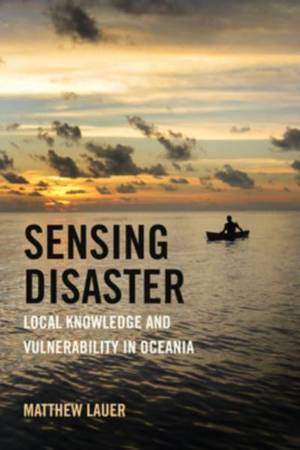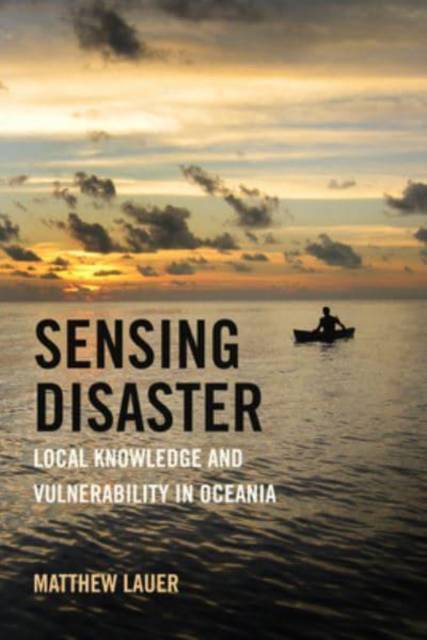
Door een staking bij bpost kan je online bestelling op dit moment iets langer onderweg zijn dan voorzien. Dringend iets nodig? Onze winkels ontvangen jou met open armen!
- Afhalen na 1 uur in een winkel met voorraad
- Gratis thuislevering in België vanaf € 30
- Ruim aanbod met 7 miljoen producten
Door een staking bij bpost kan je online bestelling op dit moment iets langer onderweg zijn dan voorzien. Dringend iets nodig? Onze winkels ontvangen jou met open armen!
- Afhalen na 1 uur in een winkel met voorraad
- Gratis thuislevering in België vanaf € 30
- Ruim aanbod met 7 miljoen producten
Zoeken
€ 161,45
+ 322 punten
Uitvoering
Omschrijving
In 2007, a three-story-high tsunami slammed the small island of Simbo in the western Solomon Islands. Drawing on over ten years of research, Matthew Lauer provides a vivid and intimate account of this calamitous event and the tumultuous recovery process. His stimulating analysis surveys the unpredictable entanglements of the powerful waves with colonization, capitalism, human-animal communication, spirit beings, ancestral territory, and technoscientific expertise that shaped the disaster's outcomes. Although the Simbo people had never experienced another tsunami in their lifetimes, nearly everyone fled to safety before the destructive waves hit. To understand their astonishing response, Lauer argues that we need to rethink popular and scholarly portrayals of Indigenous knowledge to avert epistemic imperialism and improve disaster preparedness strategies. In an increasingly disaster-prone era of ecological crises, this provocative book brings new possibilities into view for understanding the causes and consequences of calamity, the unintended effects of humanitarian recovery and mitigation efforts, and the nature of local knowledge.
Specificaties
Betrokkenen
- Auteur(s):
- Uitgeverij:
Inhoud
- Aantal bladzijden:
- 292
- Taal:
- Engels
Eigenschappen
- Productcode (EAN):
- 9780520392052
- Verschijningsdatum:
- 7/03/2023
- Uitvoering:
- Hardcover
- Formaat:
- Genaaid
- Afmetingen:
- 150 mm x 231 mm
- Gewicht:
- 498 g

Alleen bij Standaard Boekhandel
+ 322 punten op je klantenkaart van Standaard Boekhandel
Beoordelingen
We publiceren alleen reviews die voldoen aan de voorwaarden voor reviews. Bekijk onze voorwaarden voor reviews.











